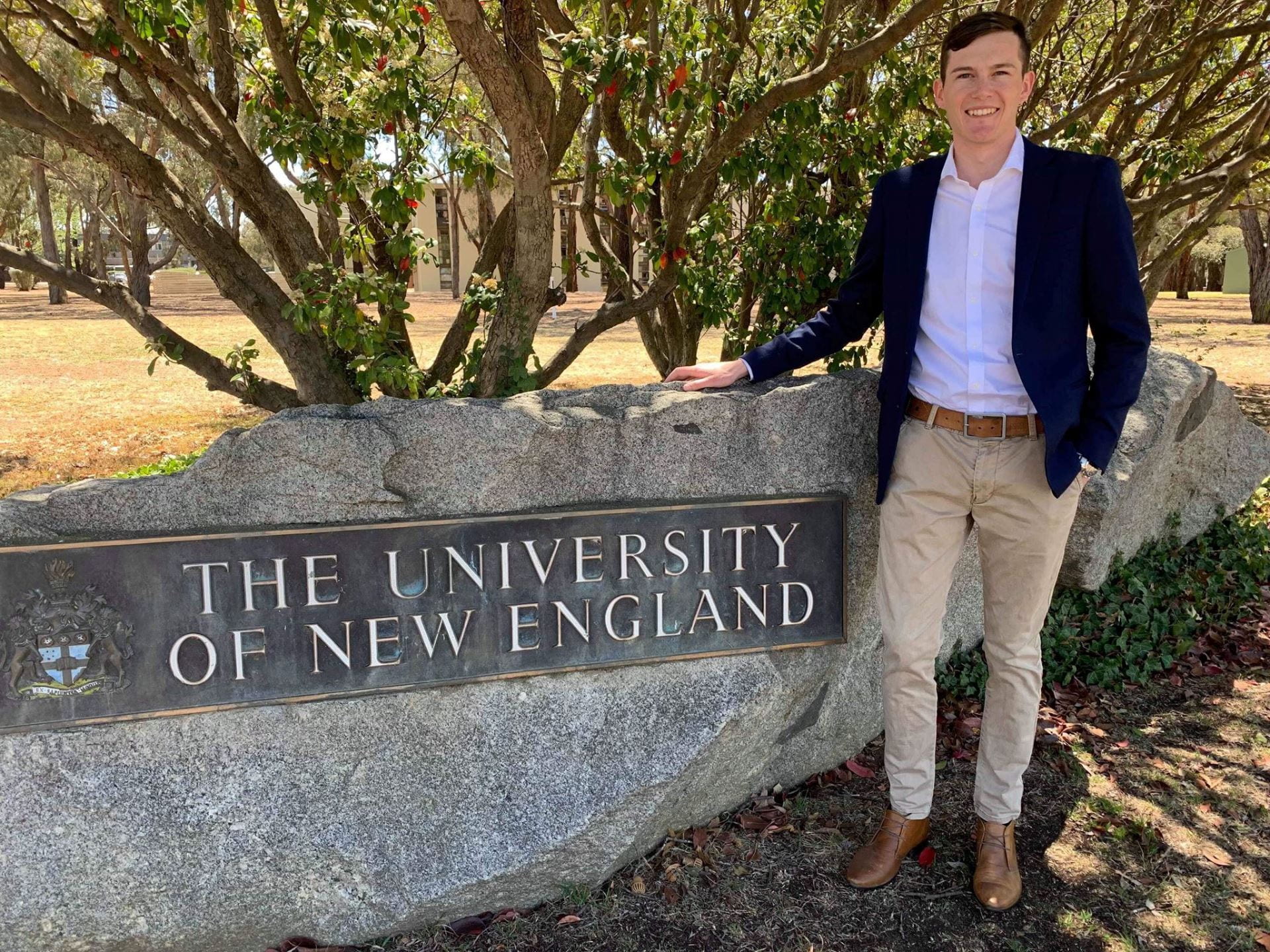Jesse Martin has been a student at UNE Law School since 2017. He is set to finish his Bachelor of Laws at the end of the year. This year, Jesse completed work experience at two different firms, one in Brisbane and another in a country firm in Glen Innes. Jesse’s main take away from work experience in law firms is that practice is very different from law school. Jesse says that it’s never too early to start work experience and he believes it is essential to gain professional experience when studying law. He has provided some tips about work experience which other law students will find helpful.
Work experience can help you decide what area of law you want to practice in
Due to the difference between practice and law school, work experience can provide a good indication as to whether you would like to be a lawyer and what area you may be interested to work in. Jesse enjoyed criminal law and criminal procedure subjects. However, after doing work experience in the criminal law division at a firm in Brisbane, he found that criminal law is not an area he may choose to specialise in. Jesse realised, ‘when you’re getting first-hand exposure to legal practice you come to terms with the sort of clients you will work with, the reality of the crimes themselves and what your role will require- you can start to see whether this type of work is for you!’
You get to learn from practising lawyers
When Jesse undertook his work experience, he took the opportunity to ask plenty of questions of the lawyers within the firms. He specifically asked the HR department and some partners what they look for in a graduate or a potential law student employee. Jesse said ‘the most common answer was communication skills and how you present, along with things such as marks, work experience and other important skills.’ The legal industry is highly competitive and law students should aim to get as much as experience as possible and make connections with legal professionals.
You get to see the client aspect
 Law school helps prepare law students for real situations, but one aspect which is difficult to emulate is the clients’ perspective. Throughout his work experience, Jesse was able to work with actual clients at his respective firms. Jesse found managing these clients’ expectations to be an important theme in practice. He says, ‘some clients are realistic about their requests, some may ask things that can’t be done, some are very emotional and might need to vent about the issues. It is the role of a lawyer to sift through the requests and the story to find what is relevant to deciding how to go about advising this client or solving the client’s problem.’
Law school helps prepare law students for real situations, but one aspect which is difficult to emulate is the clients’ perspective. Throughout his work experience, Jesse was able to work with actual clients at his respective firms. Jesse found managing these clients’ expectations to be an important theme in practice. He says, ‘some clients are realistic about their requests, some may ask things that can’t be done, some are very emotional and might need to vent about the issues. It is the role of a lawyer to sift through the requests and the story to find what is relevant to deciding how to go about advising this client or solving the client’s problem.’
You’ll develop a sense of the kind of lawyer you want to be
Jesse noticed that ‘after having many visits to court and the opportunity to attend client conferences, you get to see different styles of lawyering between the lawyers you spend time with.’ Throughout work experience, you’ll pick up on the skills that are integral for a well-rounded lawyer that you may not have as much opportunity to develop in law school.
Work experience may count towards your Practical Legal Training (PLT) course
To be admitted as a solicitor you will need the academic qualification, being your law degree as well as practical legal training (PLT) course. Often students do their PLT through the College of Law . Depending on when you do your work experience, Jesse says, ‘you may be able to count up to 60 days of work experience towards the work experience component of your PLT’. Law students should definitely keep this in mind.
. Depending on when you do your work experience, Jesse says, ‘you may be able to count up to 60 days of work experience towards the work experience component of your PLT’. Law students should definitely keep this in mind.
Go sit in court
Jesse has found that undertaking work experience during his Bachelor of Laws to be a great opportunity. But outside work experience, Jesse recommends sitting in at court whenever the opportunity arises. He says ‘After learning about the theory, it’s a great eye-opener to see how it works!’
Thank you Jesse for sharing these great tips for all UNE Law students!




I found that story to be both interesting and informative. I imagine being a law student to be quite different from actually working in law. The study of law obviously lays the foundation of skills necessary to become successful in that profession, with personality and interpersonal skills shaping and guiding the student thereafter.